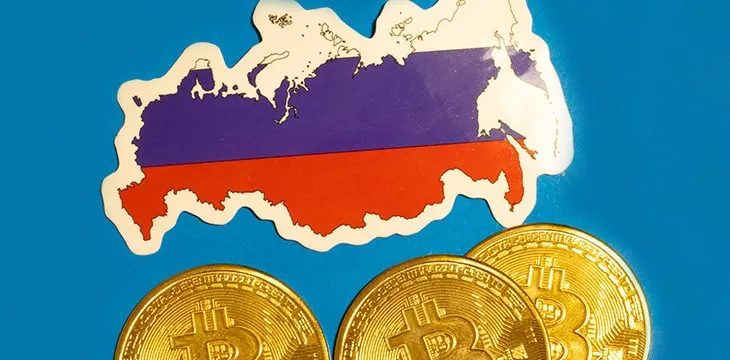|
Getting your Trinity Audio player ready...
|
U.S. Attorney General Merrick B. Garland is targeting “individuals and entities” seeking to evade economic sanctions on Russian businesses. Coming in the wake of unprecedented measures to isolate Russia from last week’s military intervention in Ukraine, the interagency law enforcement announcement titled “Task Force KleptoCapture” singles out “cryptocurrency” users who evade know-your-customer and other anti-money laundering laws.
The task force represents a direct challenge to those in BTC and the wider digital asset industry who claim to be untouchable from financial regulations and law enforcement efforts. Popular digital asset exchanges often face criticism for lax reporting and even accusations they deliberately ignore money laundering attempts on their platforms.
“Task Force KleptoCapture” will operate out of the U.S. Office of the Deputy Attorney General. It lists “prosecutors, agents, analysts, and professional staff across the Department who are experts in sanctions and export control enforcement, anticorruption, asset forfeiture, anti-money laundering, tax enforcement, national security investigations, and foreign evidence collection.”
Participating agencies include the FBI, U.S. Marshalls Service, U.S. Secret Service, Department of Homeland Security, the IRS, and the U.S. Postal Inspection Service.
AG Garland promised to “leave no stone unturned” in his government’s efforts to target and prosecute anyone assisting Russia to evade new and previous economic sanctions. The United States’ (and its foreign allies) latest rules build on other sanctions imposed on Russia over the past eight years for its military actions in Ukraine.
These sanctions are unprecedented in their scope and appear to target anyone who may have a financial connection to Russia’s current government and ruling party. The efforts aim to starve the Russian economy of income by any means short of physical military opposition, using influence over global financial networks and individuals working within them.
The task force “will be fully empowered to use the most cutting-edge investigative techniques—including data analytics, cryptocurrency tracing, foreign intelligence sources, and information from financial regulators and private sector partners” to identify anyone engaging in evading, or attempting to evade, “new and future sanctions.” Even if the defendants themselves cannot be detained, they will have powers to seize assets such as real estate, financial and commercial assets.
Deputy Attorney General Lisa O. Monaco specifically mentioned “oligarchs,” a blanket term often used to refer to wealthy multi-business actors with connections to Russia and other governments in the European and Asian region.
“To those bolstering the Russian regime through corruption and sanctions evasion: we will deprive you of safe haven and hold you accountable. Oligarchs be warned: we will use every tool to freeze and seize your criminal proceeds.”
“Crypto” business that touches the mainstream financial system (i.e., through bank transfers and fiat currency conversions) is low-hanging fruit for regulators. However, many still like to claim that transactions remaining entirely within the blockchain realm are invulnerable somehow.
The latest U.S. efforts may attempt to disprove this notion. Past efforts to seize digital assets from lawbreakers have required enforcement agencies to gain access to private keys or other account details. So far, there have been no attempts to put legal pressure on miners/transaction processors to freeze or reverse blockchain processes. Should sanctions-busting efforts become more sophisticated in the future, this will likely change.
Even mining operations that never touch the mainstream financial system require physical assets and real estate to perform their functions, as well as employees who maintain the facilities. Individual miners may participate in pools, but even those organizations represent groups large enough to be investigated.
Claims of “decentralization” in the Bitcoin and digital asset industry push the fact that minor actors in the ecosystem may fly under the radar by being too small or numerous to pursue. However, the U.S. has shown its resolve to eliminate every possible avenue of income for Russia until the country meets the international community’s demands, using the full resources of the state.
Watch: CoinGeek New York panel, Investigating Criminal Activity on the Blockchain

 07-13-2025
07-13-2025 





